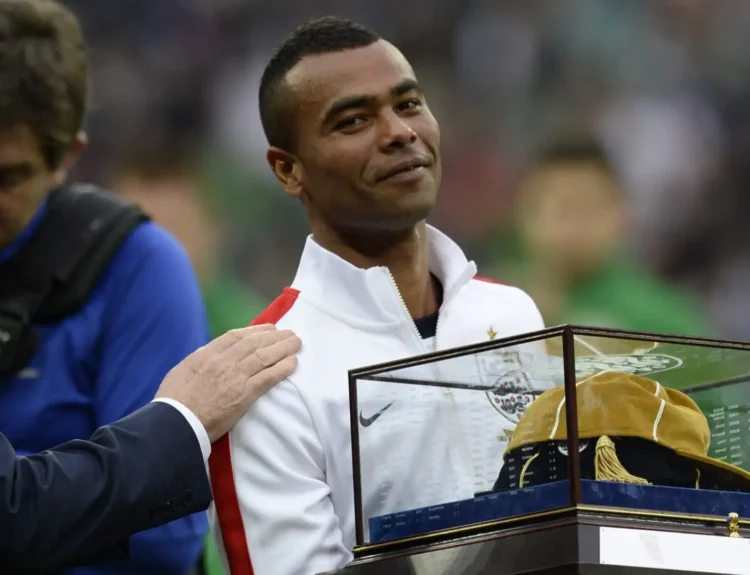Table of Contents
Understanding Footballer Salaries
In the competitive world of professional football, the question how much does a footballer earn?” captures the attention of fans, analysts, and aspiring athletes alike. Footballer salaries reflect not just athletic ability but a complex interplay of market forces, global economics, performance analytics, and commercial appeal.
Professional football is a multi-billion-dollar industry, with top clubs generating vast revenue from broadcasting rights, ticket sales, merchandising, and sponsorships. This financial power allows them to offer some of the highest salaries in the sporting world, though earnings vary significantly across regions, leagues, and player roles.
Global Salary Landscape
Salaries in professional football are far from uniform. While elite stars like Kylian Mbappé, Erling Haaland, or Lionel Messi command multi-million-dollar annual earnings, many players in lower divisions or smaller footballing nations earn more modest incomes. In 2024, top-tier players in major European leagues earn an average base salary ranging from $2 million to over $20 million annually, excluding bonuses and endorsements. In contrast, players in second-tier leagues may earn between $50,000 and $300,000 per year.
Factors Determining How Much a Footballer Earns
Footballer earnings are influenced by a range of factors beyond simply their ability to kick a ball. Clubs evaluate talent, performance, and commercial potential before finalizing contracts.
League Variations
Salaries often reflect the financial power of the league. The English Premier League (EPL), for instance, boasts some of the highest average wages due to lucrative broadcasting deals and global popularity. In contrast, leagues in South America, Asia, or Africa may pay significantly less due to smaller audiences and limited commercial revenue.
Player Performance Metrics
Goals scored, assists, tackles made, clean sheets, and match-winning contributions significantly impact a player’s market value. High-performing players, especially in key positions, command premium salaries due to their contributions to team success and fan engagement.
Contract Negotiations
Agents play a critical role in negotiating player contracts. Factors such as release clauses, signing bonuses, loyalty incentives, and wage structures are all carefully strategized. Longer-term deals with performance-related incentives are increasingly common.
Individual Skill and Marketability
A player’s technical ability, leadership, and fan appeal can substantially increase their earnings. Highly marketable athletes often secure better financial terms, especially if they attract global sponsors or serve as brand ambassadors for the club.
Salary Breakdown by League and Position
Premier League Earnings
In the English Premier League, the average player earns approximately £3 million ($3.8 million) per year, with top earners like Kevin De Bruyne or Mohamed Salah commanding over £350,000 ($445,000) per week.
European League Comparisons
- La Liga (Spain): Average salaries range between €2–6 million annually.
- Serie A (Italy): Top-tier players earn €1.5–5 million per year.
- Bundesliga (Germany): Average salaries hover around €2.5 million.
- Ligue 1 (France): Salaries vary significantly, with PSG players earning far more than the league average.
Striker vs. Goalkeeper Salary Differences
Strikers and attacking midfielders typically earn more due to their direct impact on match outcomes and greater commercial visibility. Goalkeepers, while essential, tend to earn less, with elite exceptions like Alisson Becker or Thibaut Courtois commanding higher wages due to their international reputations.
Beyond Base Salary: Additional Income Streams
While base salaries form the foundation of footballer compensation, additional income sources can multiply earnings significantly.
Endorsement Deals
Global stars often earn more from endorsements than from playing contracts. Cristiano Ronaldo, for example, earns millions annually through sponsorships with brands like Nike, Herbalife, and Clear.
Sponsorship Contracts
Many players secure personal sponsorship deals that offer bonuses tied to social media metrics, public appearances, and brand collaboration. Clubs may also allow image rights negotiations as part of broader commercial arrangements.
Social Media Monetization
With millions of followers, top footballers leverage platforms like Instagram, TikTok, and X (formerly Twitter) to monetize their personal brand. Sponsored posts, influencer marketing, and digital partnerships further augment their earnings.
The Economic Impact of Footballer Earnings
The financial clout of professional footballers extends beyond personal wealth. Their spending contributes significantly to local economies, real estate markets, and philanthropic initiatives.
Broader Economic Implications
High wages often support extensive support systems, including personal trainers, nutritionists, agents, and family members. In major footballing cities, clubs are economic powerhouses, influencing everything from employment to tourism.
Career Longevity Considerations
Football careers are notoriously short, with most players peaking between ages 25–32. As such, earnings during active years must often support long-term financial stability. Many players pursue post-retirement ventures in coaching, media, or entrepreneurship to extend their income potential.
Conclusion
So, how much does a footballer earn? The answer is nuanced and multifaceted. From multi-million-dollar salaries in top leagues to modest incomes in lesser-known divisions, player earnings reflect both individual merit and broader market dynamics. Factors like league prestige, on-field performance, and off-field marketability all play vital roles in shaping compensation. For aspiring professionals and fans alike, understanding these dynamics provides a clearer picture of the modern football economy.








